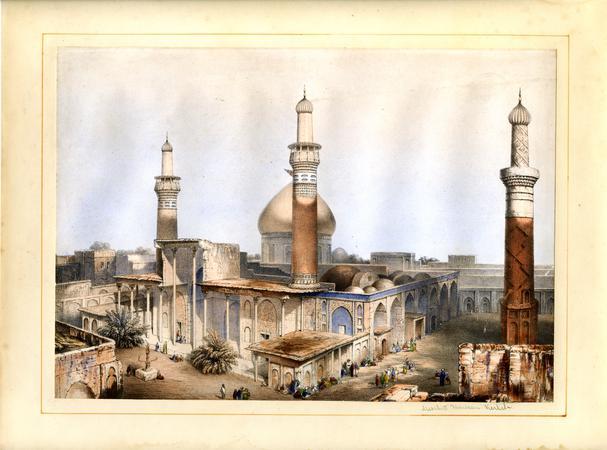In its Vol. VII, p. 373, the Karbala Civilizational Encyclopedia, issued by Karbala Center for Studies and Research at the Holy Shrine of Imam Hussein “AS”, has narrated the beginnings of British diplomatic representation in Iraq, and in the holy city of Karbala in particular.
The KCSR’s encyclopedia pointed out that the British diplomatic representation in Iraq began in 1723 AD when the England-owned East India Company established a residency in Basra run by a resident under the supervision of the British representative in Bandar Abbas.
In the seventies of the nineteenth century, the British authorities entrusted the task of supervising the Indians in the holy cities of Karbala and Kadhimiya, to two Indian agents bearing the status of British honorary agent, but the Ottoman authorities did not recognize them and therefore they did not have official status.
On August 10, 1893 AD, the Ottoman state issued an order to the governor of Baghdad, Hassan Rafiq Pasha, to recognize the British agent in Karbala, Agha Ibrahim, as a consular agent, at a request of the British government.
In 1903, based on the proposals of the British Political Resident and Consul in Baghdad, Colonel “Muckler,” and with the approval of the Ottoman Empire, the position of the Consular Agent in Karbala was changed into a Vice-Consul, whose salary and expenses were borne by the Government of India. The duties of that agent were assumed by one of the British subjects of the Afghani nationals in Iraq between 1903-1914 AD, which was Mirza Muhammad Hassan Muhsin al-Qandahari.
As for the duties of British diplomats in Iraq, they were represented in five tasks, the supervision of the affairs of British subjects, taking care of the interests of foreigners whose countries do not have consular bodies in Iraq, collecting intelligence information, and supporting the interests and influence of the British in Iraq, as well as monitoring foreign activity, especially German activity, and managing the Oudh endowment, which Britain used to influence the affairs of the holy shrines.

